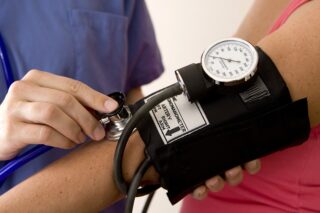
After being diagnosed with atrial fibrillation, it’s important to start a treatment plan that works for you. Without treatment, you’re at risk for serious heart conditions like heart failure and stroke. Fortunately, there are two main types of options available: medication and catheter ablation. Learn the benefits of both so you and your cardiologist can choose the right treatment for you.
What are the Benefits of Medication?
One of the primary treatments for AFib is the use of oral medications. These can include several options such as blood thinners, rate controllers and rhythm controllers.
- Blood thinners can help prevent clots or treat existing blood clots.
- Beta blockers or calcium channel blockers are useful for controlling your heart rate.
- Sodium channel blockers and potassium channel blockers can be used to slow heart rhythm.
Oral medications are cost-effective and non-invasive. This can be beneficial for those on a budget or who may be concerned about recovery times. However, keep in mind that medications may not be as effective if AFib has been untreated for a long time.
Another drawback is that medications may lose their effectiveness and stop working after you’ve been on them for some time. Studies show this can happen in as little as one year. At this point, it may be time to consider catheter ablation.
What are the Benefits of Catheter Ablation?
Another option to treat AFib is catheter ablation. This is when an electrophysiologist, or EP doctor, performs a non-surgical procedure that relies on a 3D heart mapping system.
Using this heart mapping system, your doctor navigates your heart in real time. With the map as a guide, the EP uses a catheter to locate the source of abnormal electrical signals. The EP will then create a small scar that will block the abnormal signals responsible for your irregular heart rhythm.
This procedure typically has a higher success rate than medication alone, which means there is less risk of symptoms returning. There is a low risk of complications, which is coupled with a quick recovery time.
In fact, several research trials have found that catheter ablation offers more benefits than medication. One study followed patients over eight years and found that those who had ablation were less likely to be admitted to a hospital. Death rates were lower among the ablation group, too.
Which AFib Treatment is Right for You?
Properly answering this question means consulting with your cardiologist or electrophysiologist about the risks and benefits of ablation versus medication. Whichever option you choose, it’s best to seek treatment as soon as possible for the best outcome. Both treatments will reduce your risk of heart failure and stroke, which is the second most common cause of death worldwide. To learn more about catheter ablation, contact the electrophysiologists at Heart Rhythm Consultants.



